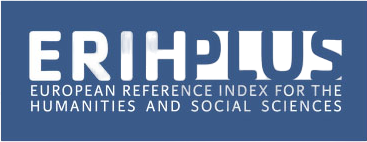Analysis on a possible public water service control in Buenos Aires and Santa Fe, Argentina
##plugins.themes.bootstrap3.article.main##
This article examines the roles of the agencies linked with the water in Buenos Aires and Santa Fe, Argentina, for the purpose of detecting possible overlapping of functions that could generate an inefficiency in the service. From the methodological point of view was used the method of documentary observation that consists of obtaining information through selective, interpretative and enlightened perception of a given phenomenon.
After analyzing all the obligations arising from the regulations of these bodies and the information provided in the conceptual networks, it should note that there are areas of overlap in the area of the province of Buenos Aires, in where it generated dubious situations about which agency go since several have the same Faculty,, for the same territory.
The above, concluded that the most problematic aspect that was scanned is linked with the operation of the supervisory bodies, through the exercise of its police power. Then, says that the existence of a high level of compliance by water companies will depend directly on the following areas:
(a) Functioning of the supervisory bodies.
(b) The quality of legislation
Downloads
##plugins.themes.bootstrap3.article.details##
Budds, J.; Mcgranahan, G. (2003). "Are the debates on water privatization missing the point?. Experiences from Africa, Asia and Latin America", Environment and Urbanization, Vol. 15, N° 2, SAGE.
Centro de Estudios Legales y Sociales (CELS),Asociación Civil por la Igualdad y la Justicia (ACIJ), Center on Housing and Rights and Eviction (COHRE) (2009). El acceso a agua segura en el área metropolitana de Buenos Aires. Una obligación impostergable, Programa Servicios Públicos, Buenos Aires.
Dourojeanni, A. (2002). "Experiencias en la formación de organismos de cuenca en Iberoamérica", El Derecho de aguas en Iberoamérica y España: cambio y modernización en el inicio del tercer milenio, Tomo II, Madrid, España, Editorial Civitas.
Ehrhardt, D.; Groom, E.; Halpern, J., O´Connor, S. (2007). "Economic regulation or urban water and sanitation services: some practical lessons", Water Sector Board Discussion Paper Series, N°9, The World Bank Group.
Fernández, D, Jouravlev, A, Lentini, E., Yurquina, A. (2009). "Contabilidad regulatoria, sustentabilidad financiera y gestión mancomunada: temas relevantes en servicios de agua y saneamiento", División de Recursos Naturales e Infraestructura, Comisión Económica para América Latina y el Caribe.
Minaverry, Clara (2014), Tesis doctoral: El Derecho como herramienta para la erradicación de escenarios propicios para la corrupción en el servicio del agua, Facultad de Derecho, Universidad de Buenos Aires.
Mutuberría Lazarini, V. (2007). Los servicios públicos urbanos como medios colectivos para la producción y reproducción de la vida de los sujetos en sociedad desde la perspectiva de la economía social. Análisis de experiencias de gestión colectiva en el Gran Buenos Aires, Tesis
de Maestría en Economía Social, 2° edición (2005-2007), Universidad Nacional General Sarmiento, Argentina, p. 25.
Rouse, M. (2007). Institutional Governance and Regulation of Water Services, Londres, Reino Unido, International Water Association (IWA),ISBN: 1843391341, pp. 29, 25, 53, 76, 178.
Solanes, M. (2008). "Common Regulatory Principles and Regulation of Water and Sanitation", International Institute for Sustainable Development, 2009.
Transparency International, Informe global de la corrupción 2008. Corrupción en el sector del agua.
United Nations Development Programme (Undp)(2011). Informe de lucha contra la corrupción en el sector del agua, Métodos, herramientas y buenas prácticas, Nueva York.

















